For a period in the 1970s and early 80s American Airlines was a Boeing 747 operator. In fact, some aircraft continued into the 1990s.
However, since then the major US carrier has avoided the jumbo jet and focussed instead on a fleet of twin and three-engine types for its long haul and widebody services.
American’s 747s
American Airlines first introduced the Boeing 747 in 1970 when the first of 16 of the original 747-100 models arrived. It had ordered them in 1966.
Like with many airlines at the time, there was a rush to order the new type which had been pioneered by Pan American in the late 1960s, and followed up with an order from TWA for their routes.
Alongside American, US airlines like United, Northwest, Eastern, Braniff and Delta all opted to add the 747 to their fleets.
However, for some airlines it just didn’t fit their needs or routes.
Delta and Eastern were quick to dispose of their 747s, opting instead for slightly smaller McDonnell Douglas DC-10s and Lockheed L-1011 TriStars.
For American it was a similar story. They would replace their 747s with the DC-10.
The reason behind this was that many US airlines had more of a domestic presence than an international network, and the 747 was simply too large even for the busiest domestic trunk routes.
Therefore slightly smaller types like the DC-10 were more suited.
During the mid-1970s, American started looking at replacing its 747s and chose to convert much of the fleet into freighters to carry cargo.
Where Did American Fly its 747s?
The first American Airlines 747 service took place on 2 March 1970, between New York JFK and Los Angeles International, on the busy coast-to-coast trunk route. New York to San Francisco, Chicago and Dallas/Fort Worth were soon added too, as was service to San Juan Puerto Rico.
Later additional transcontinental service was added from Chicago O’Hare, Boston and Washington Dulles to the West Coast, and a link from Dallas/Fort Worth to Honolulu was also flown by the Jumbo.
The later 747-SP fleet acquired by American had a special purpose – to fly the very long-haul link between Dallas/Fort Worth and Tokyo Narita in Japan. They were also used on some routes to Europe.
American’s 747 Fleet
In total, between 1970 and 1985 American Airlines flew 19 different Boeing 747s, split across three variants – the 747-100, -200 and SP.
Some aircraft were leased in to cover short-term gaps in capacity, including the first two examples which were leased from Pan American prior to American’s own aircraft being delivered.
Here’s an American Airlines Boeing 747 Fleet List
747-100
N740PA (19647/16), 747-121A, 1970-1971 (leased from Pan American)
N743PA (19650/24), 747-121A, 1970 (leased from Pan American)
N9661 (20100/46), 747-123, 1970-1974; 1981-1984
N9662 (20101/57), 747-123, 1970-1974; 1980-1981 (as N662AA); 1981-1984 (as N9676)
N9663 (20102/59), 747-123, 1970-1984
N9664 (20103/65), 747-123, 1970-1984
N9665 (20104/69), 747-123, 1970-1985
N9666 (20105/77), 747-123, 1970-1978; 1984
N9667 (20106/79), 747-123, 1970-1978
N9668 (20107/86), 747-123, 1970-1974
N9669 (20108/87), 747-123, 1970-1984
N9670 (20109/90), 747-123SF, 1970-1984
N9671 (20323/115), 747-123SF, 1971-1975; 1981-1984
N9672 (20324/119), 747-123SF, 1971-1984
N9673 (20325/125), 747-123SF, 1971-1984
N9674 (20326/133), 747-123SF, 1971-1983
N9675 (20390/136), 747-123SF, 1971-1984
N9676 (20391/143), 747-123SF, 1971-1975
747-200B
N749WA (20653/237), 747-273C, 1984 (leased from World Airways)
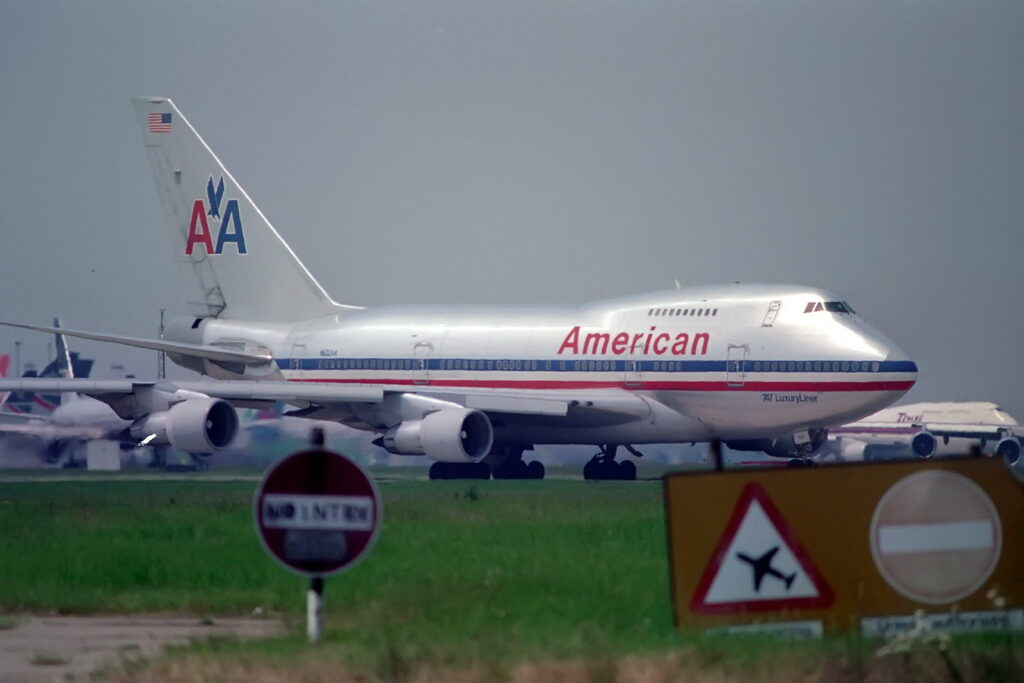
American 747-SP. Photo (c) aceebee
747-SP
N601AA (21962/439), 747-SP31, 1986-1994
N602AA (21963/441), 747-SP31, 1986-1994
Where Did American’s 747s Go?
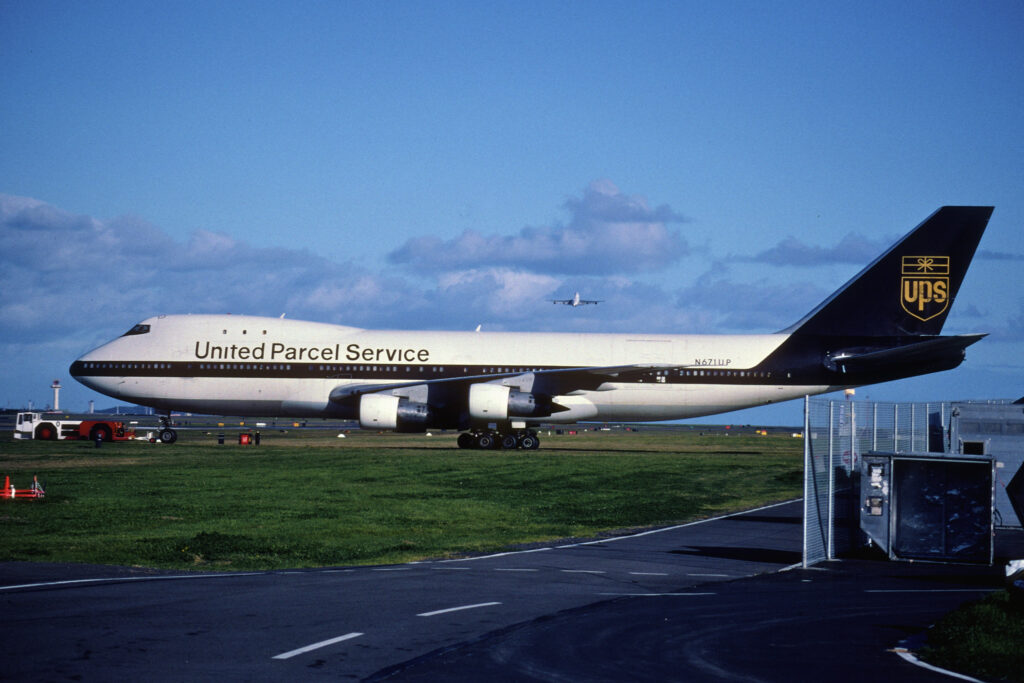
N671UP with UPS, previously N9671 with American Airlines. Photo (c) Aero Icarus
By the 1980s when American Airlines was disposing of its Boeing 747 fleet, there was very little demand for these earlier -100 models. The 747-200B had come along with enhanced operational performance, engines and cabin layout, and was thus the preferred model at the time. Therefore there was very little demand from passenger airlines for American’s 747-100s.
Almost all of the passenger examples were sold on to cargo carriers (as well as the freighters, naturally). These include airlines like UPS, Flying Tigers and TMA.
The two 747-SPs were already second-hand airplanes by the time they came to American, having started life flying for Trans World Airlines (TWA). They remained in American’s fleet much later than the other 747s, into the 1990s, and were sold on for conversion into VIP aircraft. One went to the United Arab Emirates Government, and the other to the Government of Kazakhstan.
A Special Role
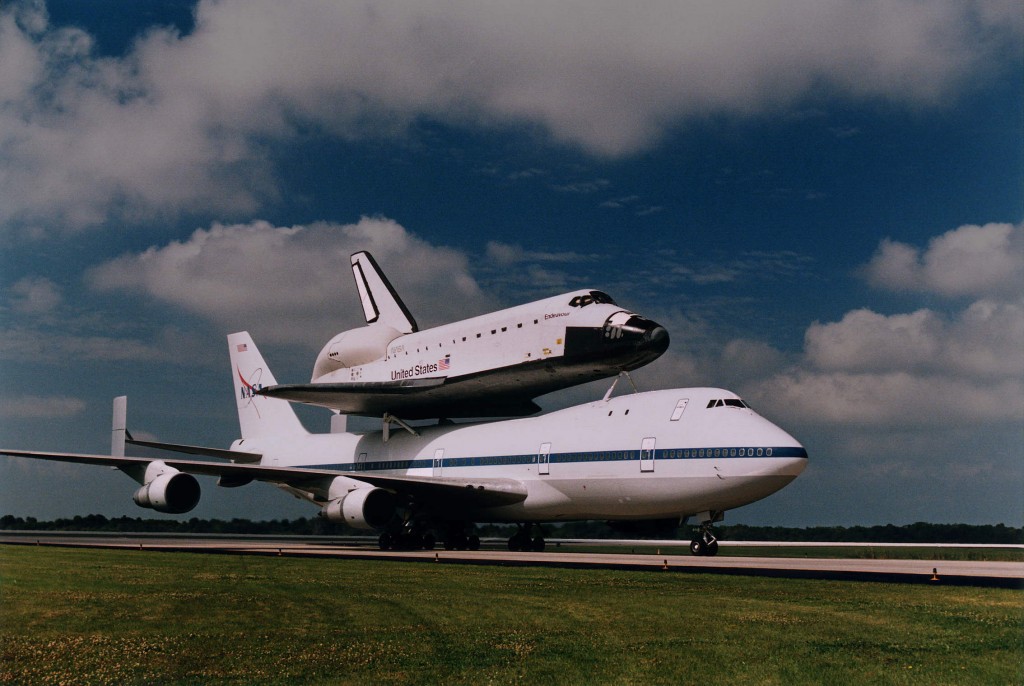
In the mid-1970s NASA was looking for a suitable airborne platform to launch and transport its new Space Shuttle aircraft.
It considered the Boeing 747 the perfect solution, and procured two aircraft which would be modified and strengthened to be able to carry the Shuttle piggyback from one location to another. The so-called Shuttle Carrier Aircraft (SCA) was also used to launch the prototype Shuttle, Enterprise, from high altitude during testing and pilot training.
Of the two aircraft acquired, one was a former American Airlines 747-123, N9668. It had joined American in October 1970, and was sold to NASA in July 1974.
For a few years it still wore its basic polished American livery, with blue, white and red stripes along the fuselage.
The other SCA was a former Japan Airlines 747-SR46 domestic model.
A Starring Role
In 1975 American’s 747-123SF N9675 was used as the star of a film, Airport 75, starring Charlton Heston and George Kennedy.
The disaster movie centres around a domestic flight where a light aircraft crashes into the cockpit mid-flight, rendering the flying crew unable to fly the aircraft. A rescue mission sees a pilot parachuted into the 747 to help land it safely.
Aviation enthusiasts watching the movie would instantly recognised the aircraft’s livery as being that of American Airlines, even if the titles were replaced by fictional Columbia Airlines.
Do Any American Airlines 747s Survive?
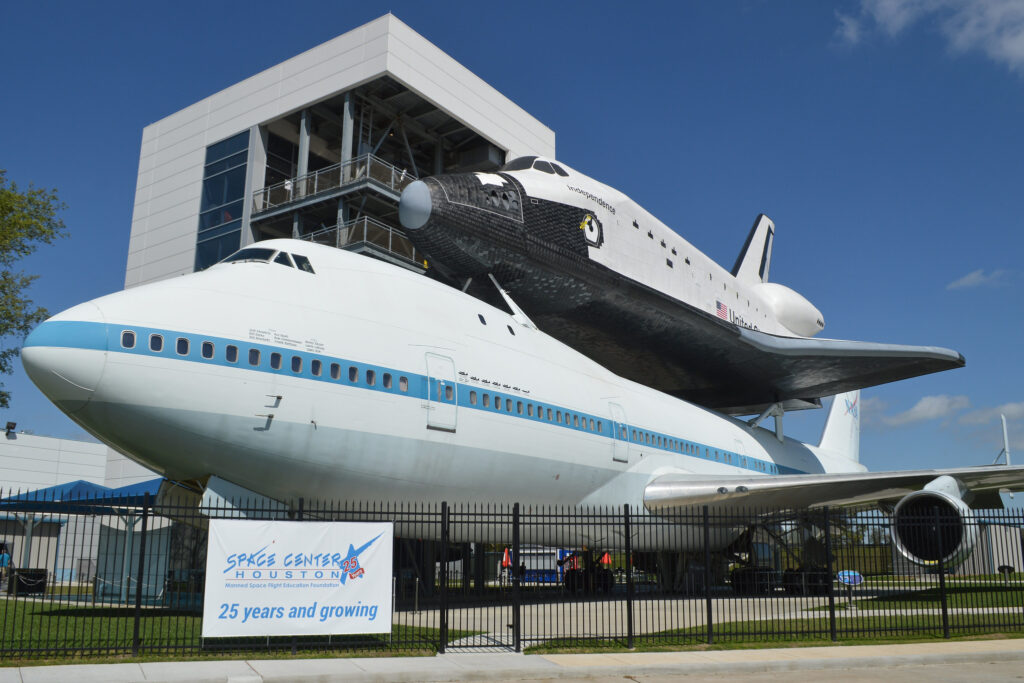
The SCA preserved in Houston. Photo (c) Alan Wilson
Of American’s 747 fleet, few examples remain in existence today. Most, once sold on to cargo carriers, lived out their days hauling cargo around the world before being parked and scapped.
Naturally, the NASA Shuttle Carrier Aircraft N905NA (formerly N9668) still exists. It is preserved at Houston’s Johnston Space Center with a replica Shuttle mounted on its back.
N743PA, one of the two 747-100s leased from Pan American, still exists. It is being turned into the ‘1975 Avenue & Hotel’ in Johor Bahru, Malaysia, alongside another 747, although not yet open. The video here shows their position.
Of the two Boeing 747-SPs, N601AA remains in a tiny portion, with the upper deck used by Cargolux as a training aid at Luxembourg airport.
N602AA is currently stored at Marana Pinal Airpark in Arizona, having been used by Ernest Angley Ministries most recently. It is unlikely to fly again.
American’s Long Haul Fleet Today
Following the removal of its 747s, American added the DC-10 in large numbers. In the 1990s and early 2000s it also flew the later MD-11 model.
From the late 1980s American began adding the Boeing 767 in large numbers, and the stretched 767-300 model was more than capable of flying long-haul services as well as domestic trunk routes.
Later, the Boeing 777 (both the -200 and -300) became the mainstay of long haul routes, and are still a major part of American’s fleet today, alongside the dwindling 767-300 fleet.
It also operates the Boeing 787 Dreamliner in increasing numbers.
With modern single-aisle aircraft now more than capable of long-haul operations, American is also looking to fly its future Airbus A321XLR aircraft on transatlantic services.
Do you remember seeing American’s 747s? Did you fly on one?! Were you a fan of Airport 75? Leave a comment below!
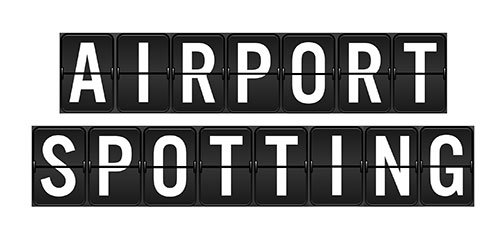








1 comment
“Airport”, the original, 1970…I was a 15 y/o airline geek when it came out and drank it all in. Airport ’75, it was only OK but I love the air-to-air scenes. Airport ’77, meh. Airport ’79, I actually fell asleep 3/4 of the way through.